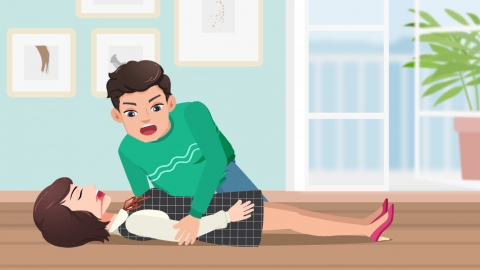What causes hypothermia after administering cardiac stimulants post-shock, and what should be done?
Post-shock administration of cardiotonic agents leading to hypothermia may be caused by factors such as physiological thermoregulatory imbalance, drug effects, hypoglycemia, hypothyroidism, and septic shock. This condition can usually be improved through general treatments and medication. If abnormalities occur, timely medical attention is recommended. Detailed explanations are as follows:

1. Physiological thermoregulatory imbalance: In shock conditions, the body redistributes blood flow to maintain perfusion of vital organs, reducing blood flow to peripheral tissues such as the skin, thus affecting the balance of heat dissipation and retention. After administration of cardiotonic agents, cardiac function is temporarily enhanced, which may lead to hypothermia due to insufficient improvement in peripheral circulation. It is recommended to closely monitor body temperature and promptly implement warming measures such as increasing bedding and adjusting room temperature.
2. Drug effects: Cardiotonic agents such as dopamine and epinephrine may, while enhancing myocardial contractility, also affect the body's metabolic rate and thermoregulation mechanisms, potentially causing a drop in body temperature. Management includes not only warming measures but also close monitoring of drug reactions, with dose adjustments or medication changes as necessary.
3. Hypoglycemia: Following shock, stress responses may lead to decreased blood glucose levels. In a hypoglycemic state, insufficient energy supply reduces heat production, making hypothermia more likely. While cardiotonic agents can improve cardiac function, the issue of hypoglycemia still needs to be addressed. Prompt glucose supplementation is necessary to correct hypoglycemia, along with close temperature monitoring and warming measures.
4. Hypothyroidism: In hypothyroidism, the body's metabolic rate decreases, reducing heat production and predisposing to hypothermia. In shock conditions, hypothyroidism may exacerbate this tendency. While cardiotonic agents can improve cardiac function, they cannot fundamentally address the reduced metabolic rate. Medications such as levothyroxine sodium tablets, Yikang capsules, and vitamin B6 tablets may be used under medical guidance to alleviate symptoms.
5. Septic shock: Following infection by pathogens such as bacteria or viruses, inflammatory responses may disrupt the function of the thermoregulatory center, and the infection itself may increase heat consumption. Although cardiotonic agents can temporarily improve cardiac function, if the infection remains uncontrolled, hypothermia may persist. It is recommended to use medications such as cefoxitin sodium for injection, amoxicillin tablets, and ampicillin capsules under medical guidance for treatment.
In daily life, patients who have received cardiotonic agents after shock should closely monitor temperature changes and promptly implement warming measures to reduce the occurrence of hypothermia.




